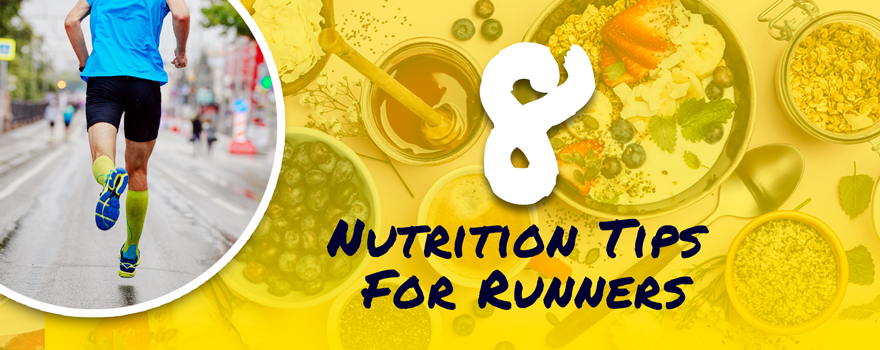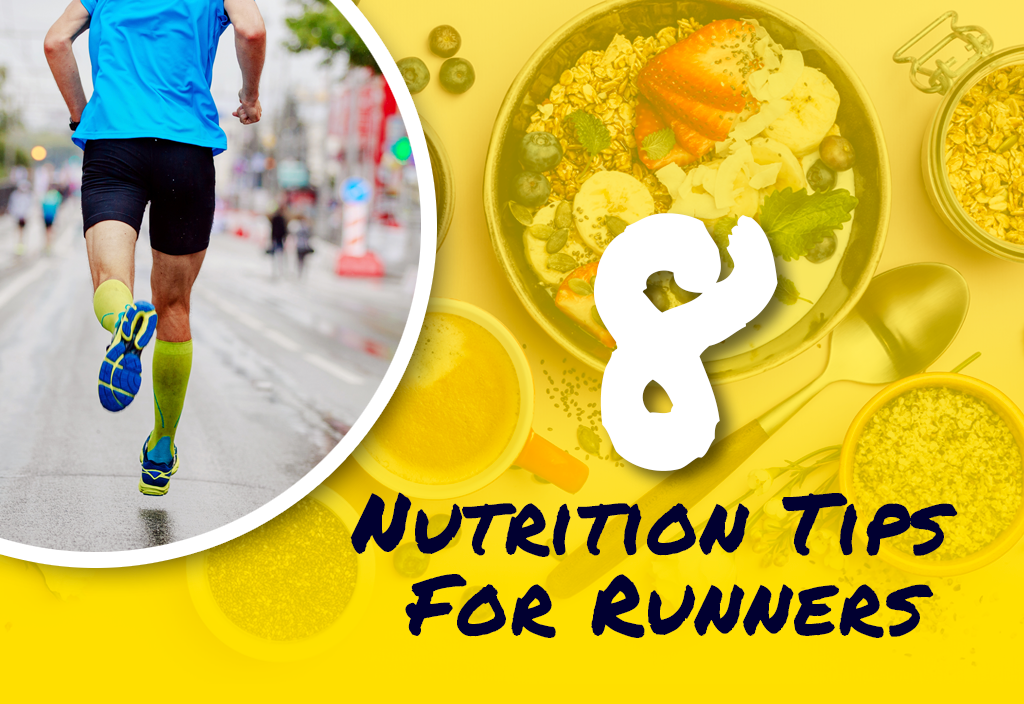
Running nutrition is essential, whether you are a novice or seasoned runner. Whether or not to eat before your run though, is a personal choice and also dependent on the session goals. If you’re heading out for an easy run or duathlon lasting up to around 60 minutes, then you don’t NEED to eat, but if you choose to, that’s fine also. Your body stores enough glucose for around 60 minutes of exercise, so it’s not overly important to feed before runs of this time, especially if weight loss is your goal.
If you’re going for longer run or going for a hard session such as a 5km time trial or some HIIT work and the output (ie speed/pace) is important, you may want to fuel appropriately with some carbohydrates, both complex and simple and a little protein. Just ensure that you don’t go too heavy, too close to your session and you time your fibre intake sensibly, so you’re not caught short 😉
Got An Event? Don’t Forget Your Running Fuel
Eat about 1.5 to 2 hours before the start of your event. Don’t forget the golden rule, though “Nothing New On Race Day”. If you’re racing for less than an hour and you dont usually train on a meal, you can get away with little or nothing, just ensure you fuel well the night before. If its a longer race, go with standard training breakfast around 2 hours before the start of your event.
Nutrition Is Your Bodies Fuel. Keep It Going During Training
We’ve covered before training or racing, but what about during? We already now your body stores enough carbohydrate fuel for upto around an hour of training, so less a super sprint or 10km run, you probably wont need anything during.
Anything longer though and you’re looking to have something light every 30-60 minutes. A gel, some jelly babies, rice cake or jaffa cakes are all excellent, easy to carry and easy to eat ideas that could keep you fuelled while training.
Keep It The Same On The Day Of The Event
The worst thing that can happen to you on race day is discovering that you have eaten something you shouldn’t. You might as well include running food in your training program to avoid being stuck in the bathroom when everyone else crosses the finish line.
The Golden Rule as always, is “Nothing New on Race Day”
If you eat breakfast, make it count
Breakfast is often touted as the most important meal of the day, yet Intermittent Fasting and not eating until lunch is the latest nutrition buzz… whichever you choose, make sure it’s consistent both during training and race season.
Bananas are an excellent high-carbohydrate energy source. You can also get a boost of energy by eating oats or porridge with peanut butter, yoghurt and some yoghurt. Add in some bagels, white bread and even a few slices of it and you’ll see that the best foods to fuel runners are pretty common foods.
It’s always worth adding a little protein to your breakfast, such as eggs, protein powder or bacon, which will not only add flavour, but will help keep you fuller for longer.
Don’t Over Eat
It’s easy to think that you should eat as much as you can to maximise your energy. You probably don’t need to eat as much food, and you certainly do not want to run with food in your stomach. It’s not that a higher carbohydrate diet means more calories. Instead, it is a change in what you eat. Your last large meal can be as much as 36 hours prior to the start of your running event. Don’t overeat and don’t try to feel satisfied with the amount of food you consume.
Keep High Fat and High Fibre Stuff To A Minimum
Avoid eating too much fat. Overeating can be uncomfortable, even though some swear by it. Food high in fibre is the worst for causing upset stomachs. You can easily avoid it by peeling fruits and avoiding whole grains or vegetables around training and race times.
Keep Your Running Diet Simple
Most likely, you don’t need to buy expensive energy bars, running gels or other products like that, particularly for short to middle distance races. It’s not necessary to give them up, but you will keep your running nutrition relatively inexpensive if you don’t buy them. If you are running for health or well-being, then energy bars with high sugar content might not be the best choice.
Slowly Slowly Wins The Race
It is important to remember that running nutrition does not apply to all races. You don’t have to make a huge impact, but you never can tell what could make a difference. It doesn’t matter how small the contribution is.Now that you have the fuel part of your run sorted why not take a look at some stretches to help with your running recovery or even head over to our post on how not to run

